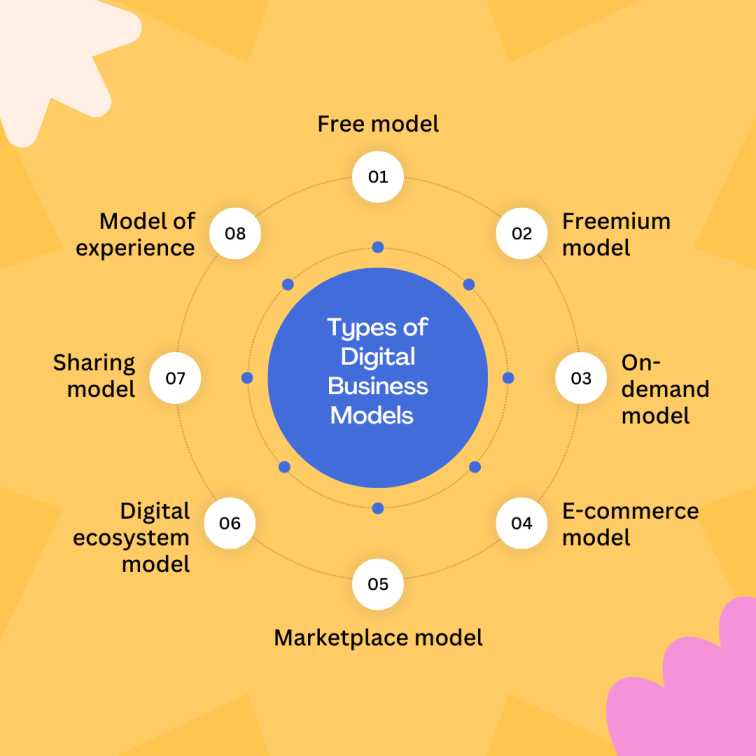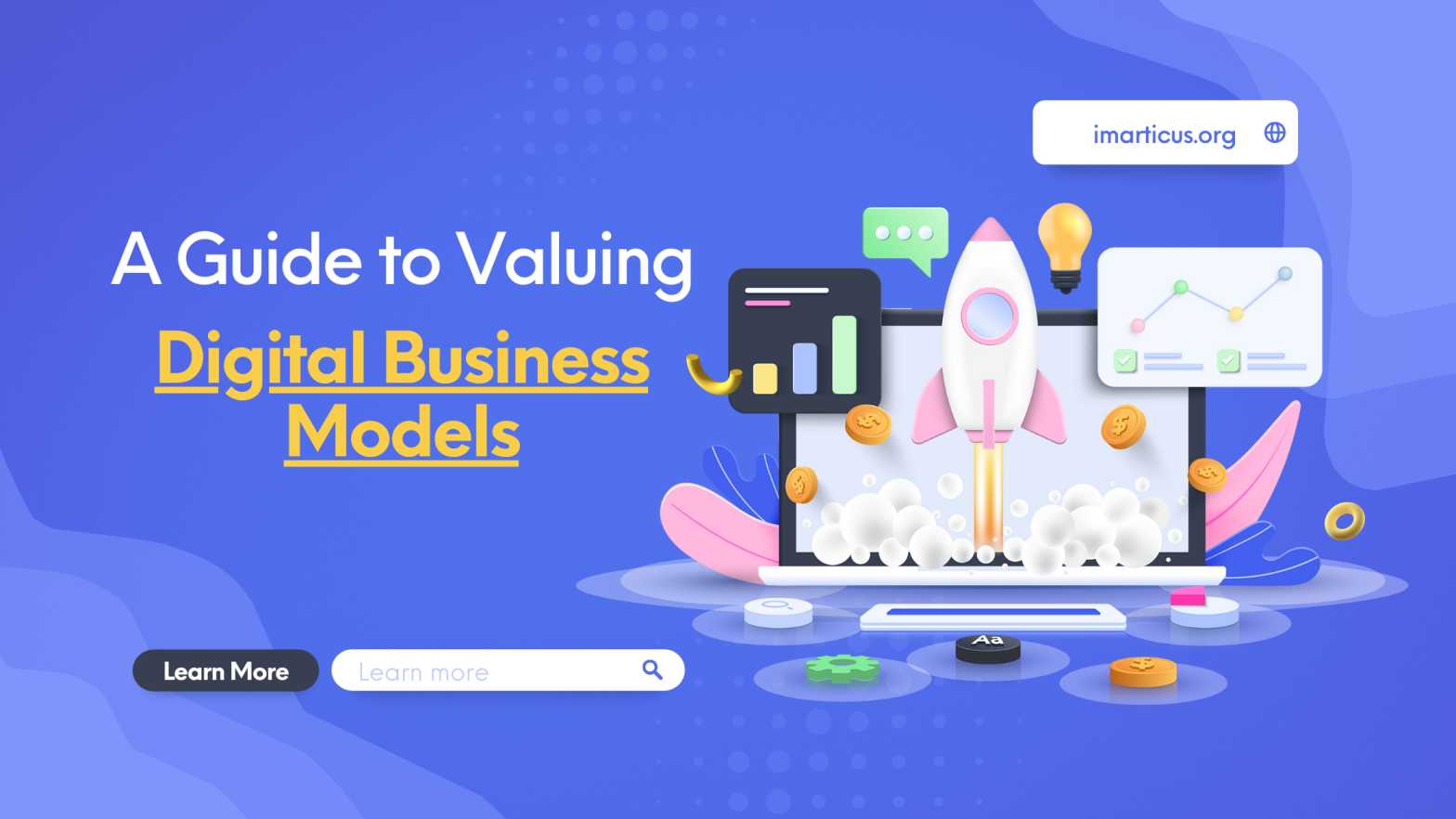Table of Contents
Last updated on July 15th, 2024 at 10:29 am
Business digitalisation is the new architecture of a modern-era business that may be applied directly to a start-up venture or used upon an existing business model. The process is technology-driven, both for inter-departmental and client-end operations. Hence, it aims to increase business efficiency at all levels and functional departments with the ultimate objective to maximise revenue and profit with the same resources.
An important initiative of the digital business model is to create new opportunities and meaningful value drivers for business through its data-based methodical approach. If you are a CFO or an aspiring CFO, remaining industry-relevant is paramount to driving businesses to digital success. In such a scenario, CFO training courses can equip you with the upcoming digital models and tools to cement your position as an invaluable asset in your organisation.
Characteristics of Digital Business Models
The pandemic Covid-19 changed the way businesses operated globally. Artificial intelligence, which can provide practical solutions with inputs from historical databases, is the core of digital business models.
On the customer front, this model can respond to their queries when they visit concerned websites and wish to interact with the chatbots. On the business owner’s end, it provides logical solutions, both departmentally and cross-functionally.
The following are the characteristics of digital business models –
1. Flexibility
This business model is extremely flexible in handling problems and offering solutions. New business parameters can be easily added and obsolete ones removed so that the business model stays relevant.
2. Scalability
The primary feature of a digital business model is its scalability. With the addition of more resources to generate more revenue and profit, the model helps maintain quality and keeps the price in check.
3. Creation of completely new business lines
Digital business models have created new business models like e-commerce platforms, which did not exist before the extensive usage of the internet became predominant in our daily lives. Similarly, it has also changed how public transportation worked in the past by introducing the system of app-based cabs, app-based food delivery, e-booking systems, etc.
4. Customer re-orientation
Customers can now seamlessly leverage the benefits of digital business channels. Being technology savvy, most customers can easily adapt to new business ways. Online payment is a by-product of the digital business model.
5. New business culture
The digital business model has also developed a new culture in the relationship management between the manufacturer, the vendors and the customers. The interaction channels have been widened, and feedback from both vendors and customers reach easily. So, the goal of fulfilling the demands of clients to generate satisfaction may be achieved easily.
6. Digital business components
Digital engineering, digital strategy, interactive interface, internet of things and artificial intelligence are some of the basic components of the digital business model.
Benefits of Digital Business Models
The benefits of the digital business model are as follows –
1) High quality and consistency
Digitalisation helps to deliver high-quality, reliable products consistently. This is the key to enhancing customer satisfaction.
2. Optimum pricing
Pricing is a sensitive issue in many parts of the world. Since digitalisation, this parameter could be maintained conveniently.
3) Productivity
Digitalisation has improved productivity to a large extent by removing unwarranted human interferences and errors. Systems and processes have been created to allow every employee to work effectively and efficiently.
4) Decision making
A correct and timely decision takes a company to its desired goal. Earlier, veteran executives made decisions for the company solely based on their gut feelings and experience. However, present-day decision-making is made simple by abundant volumes of historical data available at their disposal.
5) Operational cost
The slow movement in production lines and manual handling would increase operational costs in most cases. Presently, computerised production lines are efficient and faster. This, in turn, lowers the production cost.
6) Governance
Every company must adopt digital automation to sustain itself in this dynamic business landscape. Though initial installation costs may seem high, the subsequent payback through the e-governance of business models more than compensates for the costs. Errors become minimal, and the process becomes efficient at every stage.
Types of Digital Business Models

Selecting the correct business model helps a company achieve its goal quickly. Selecting the right model is also important for CFOs as they should be financially viable for the company. Some of the successful models are as follows –
1. Free model
This model is financed by web hosting giants like Google or Facebook to generate customers and utilise them as end products. Customer feedback motivates them to float the most relevant advertisements to attract more customers.
2. Freemium model
This business model allows users to use a basic version for free just to develop their habit of getting used to it. Later, a fee-based model is offered with added features and an advertisement-free experience.
3. On-demand model
This model aims to attract customers by offering viewership or usage rights to a service for a limited time, thereby creating interest in them to buy the services with a charge.
4. E-commerce model
This model allows all customers to buy products or services online instead of the traditional offline system.
5. Marketplace model
This model utilises a two-sided marketplace where buyers and sellers can trade services or goods through a third party like Swiggy or eBay.
6. Digital ecosystem model
This business model is by and large the most successful one and has been used by many giant companies like Google, Tesla, Alibaba, etc. The key feature of this model is to start a business with one significant product or service that immediately strikes a chord with the masses.
7. Sharing model
In this model, the user gets access to the product or service but does not have the right to own it. These are digital renting-out services.
8. Model of experience
This model amalgamates the digital transformation of an existing industry following the digital ecosystem model. Tesla is the best example.
Conclusion
A Chief Finance Officer is the ultimate custodian of the business in any organisation. Since business is now being conducted in the digital model, it is a must for the candidate to get acclimatised in this digital environment. CFO certification is the only way forward in this case.
The Postgraduate Certificate Programme for Emerging CFOs by Imarticus is one of India’s best CFO training courses. Spread over 151 hours only, this CFO certification course allows you to keep up with your professional life with classes held only at weekends.
Visit the official website of Imarticus for more details.

